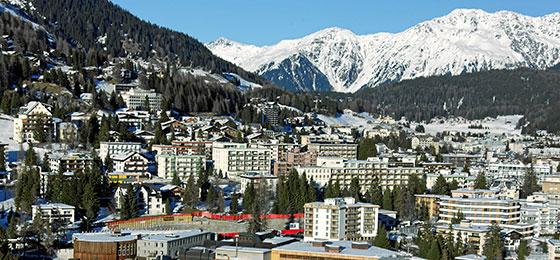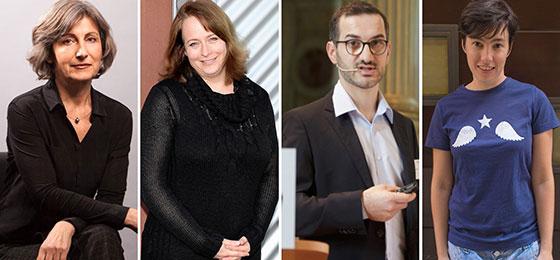Cybersecurity and science policy: SNSF goes to the World Economic Forum

The Swiss National Science Foundation is making its first official appearance at the WEF. The SNSF will host a dialogue on cybersecurity, and director Angelika Kalt will be discussing issues of science policy with leading figures, including Guy Parmelin.
In a first for the Swiss National Science Foundation, the organisation has been invited to the World Economic Forum 2019. The SNSF will be addressing the topic of cybersecurity in the form of an “IdeaLab” consisting of brief presentations by scientists, followed by in-depth discussions in small groups. It will take place at the Congress Centre on 23 January 2019.
Three young researchers have been invited by the SNSF to share their expertise. Myriam Dunn Cavelty of ETH Zurich is a specialist in the security and policy aspects of IT risks. Srdjan Capkin has founded two spin-offs and focuses on protecting GPS systems from cyberattacks. Carmela Troncoso is based at EPFL, where she develops tools to ensure the confidentiality of data and communications, in particular against attacks based on artificial intelligence. “To be in Davos is a great opportunity to explain my research to an audience that I rarely have access to,” says Troncoso. “This can really help me to reach with my work the people and organisations that can make the best use it. But I am also here to stress that research should be thought about in the long term, and that it should stay free and international.”
Angelika Kalt, SNSF director, emphasises the importance of facilitating interaction between talented researchers working in Switzerland and leading figures from business and politics. “It’s not only a question of explaining how Swiss research contributes to better anticipating IT risks, but also of initiating a dialogue on converging interests between the academic world and society.” On 24 January, she will take part in a multilateral discussion on Swiss science policy with the presidents and rectors of the leading Swiss academic institutions as well as with Guy Parmelin, Federal Councillor and head of the Federal Department of Economic Affairs, Education and Research.
